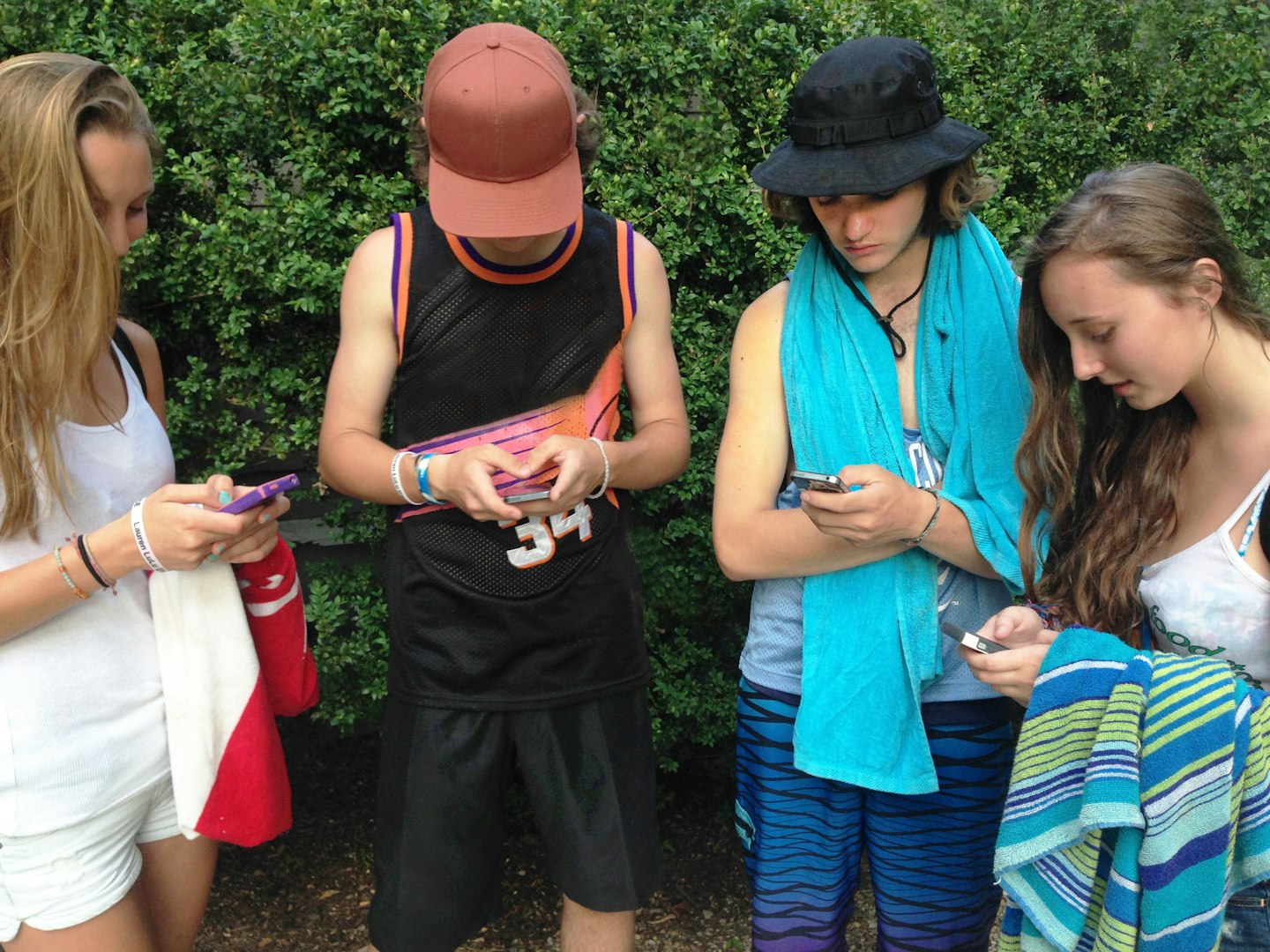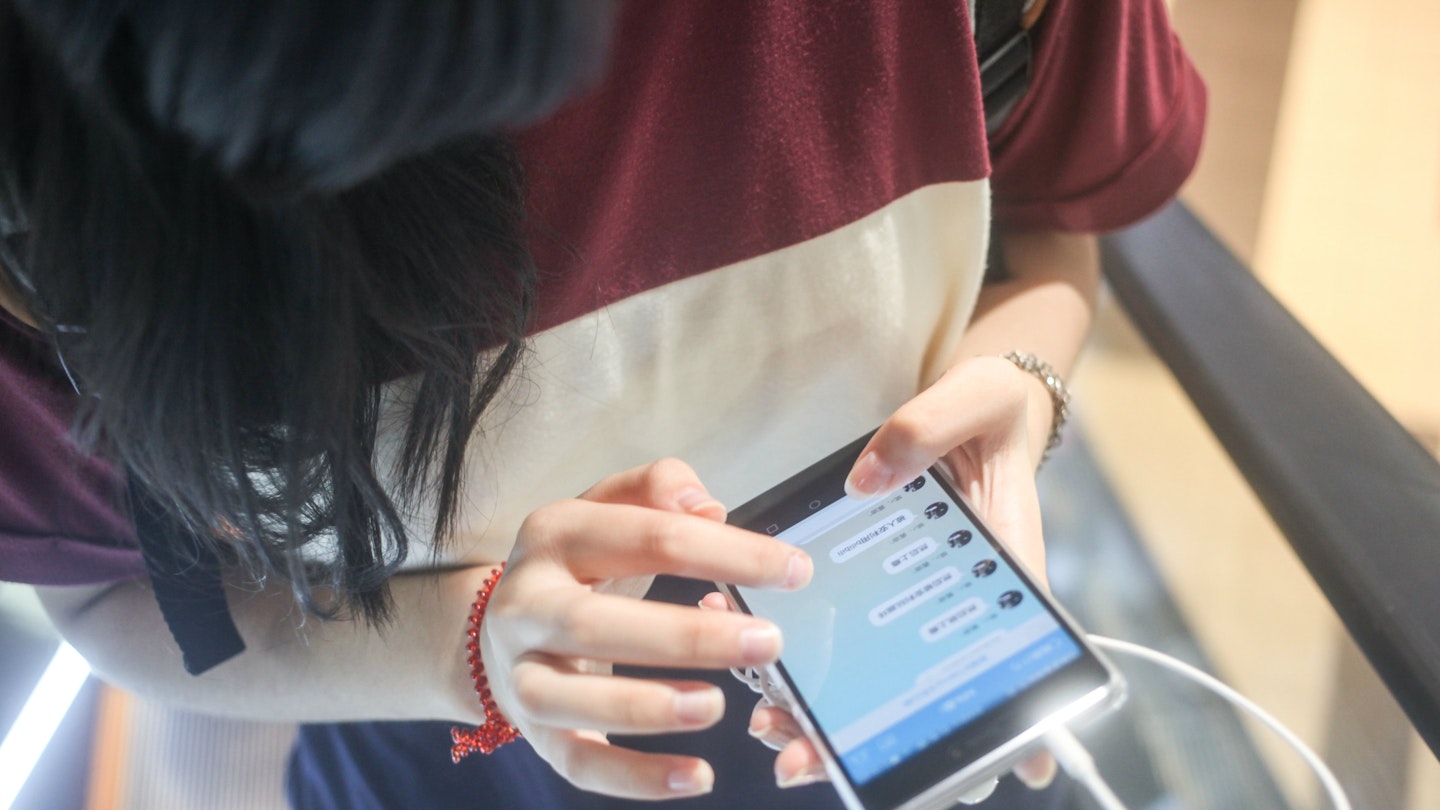Children searching for help and advice about cyberbullying will hit its peak in October, a whole month after they have returned to school, according to new statistics.
Internet Matters, a not-for-profit organisation hoping to help parents understand and deal with bullying online, carried out a small-scale survey and the results are truly shocking.
In 2015, there were eight times as many Google searches for the term during this autumn month (134,000), compared to the summer months July and August (17,000).

Carolyn Bunting, general manager of Internet Matters, said: "This time of the year can create a perfect storm for cyberbullying.
"Connecting with friends on social media and online can be liberating and empowering for children, which makes cyberbullying all the more impactful."
Closer chatted to psychologist Dr Linda Papadopoulos, an ambassador for the campaign, who wants to help and guide parents about the detrimental effects of bullying in the digital age.

What actually is cyberbulling?
“Cyberbulling is effectively bullying online. In the past bullying was mainly all about what was going on in the playground, nowadays it extends beyond the school gates and has the potential to never leave kids – it follows them everywhere, to their bedrooms and beyond,” Dr Linda explained.
She also noted that cyberbullying can take many different forms: nasty messages, posting unattractive photos, persistent teasing, excluding people from group chats, being made to feel uncomfortable and so much more. It’s not just a case of receiving ‘mean messages’ anymore. It can happen on so many platforms. From social media sites to games consoles.
Are there any cyber bulling warning signs?
.jpg?auto=format&w=1440&q=80)
Dr Linda said there are many, including:
- A change in their attitude towards their devices. Not using it as regularly, or their mood may suddenly change when they receive a message or finish using the computer.
- Appearing closed off from their friends. Not wanting to play or not feeling excited about participating in group activities.
- Avoiding school completely.
- A dip in their school marks, as their mind is clearly elsewhere.
- Seeming nervous or jumpy around social media, including not wanting you to see things.
Why do parents struggle to relate to cyberbullying?

Dr Linda notes that parents often struggle to get their head around the concept of bullying in the digital age as they simply just can’t relate to what they’re going through.
"You really need to make the effort to understand, it’s so important. What parents might not understand is that there is no offline/online world anymore, for kids born after 1995, that doesn’t exist, it’s all the same thing.
"Social media is so extensive, so unless you’re aware of the platform that your child is using it’s so easy just to accept that you’re not part of their world."
She concluded that parents just need to hold their hand and figure it all out together: "The internet is a wonderful thing and I think social media can be amazing but it can also be an emotional minefield."
You find out your child is being cyber bullied – what do you do next?
The trickiest part of dealing with any bully is confrontation and fear – it’s even harder when it’s all done through a digital portal. Dr Linda advises taking these steps:
Keep evidence – screenshots of conversations, times, names…etc.
Never take away their device – It’s important to moderate you children’s accounts until whatever age you feel right. You need to find limits and boundaries with the internet.
Talk! – Make sure your child feels like they’re able to talk to you about anything to do with bullying. From Snapchat filters to Instagram stories, make sure you’re in the know.
BLOCK – Social media sites have a built in tool so you can block anyone causing you grief online.
**Ask them not to reply ** – Even though it’s always easier said than done, ignoring bullies means that you’re not giving them the reaction they so desperately want.
What do I do if I find out my child is bullying others online?

Dr Linda says: "Have a discussion with your child about the right way to use social media. Explain that your actions could be hurtful to others, get them to understand that that tone of phrase isn’t seen on the internet and ‘jokey’ comments can be misconstrued.
"The most important lesson is to tell them not to tweet, text or post when they’re angry and alert adults around them: teachers, their friend’s parents and direct them to websites like Internet Matter so they can see the effects that bullying has had on others."
Dr Linda Papadopoulos is supporting the campaign by Internet Matters helping parents deal with cyberbullying.
The not-for- profit organisation, backed by BT, Sky, TalkTalk, Virgin, Google and the BBC, has compiled new guidance, comprehensive information, and resources for parents, available to download on www.internetmatters.org/cyberbullying.
